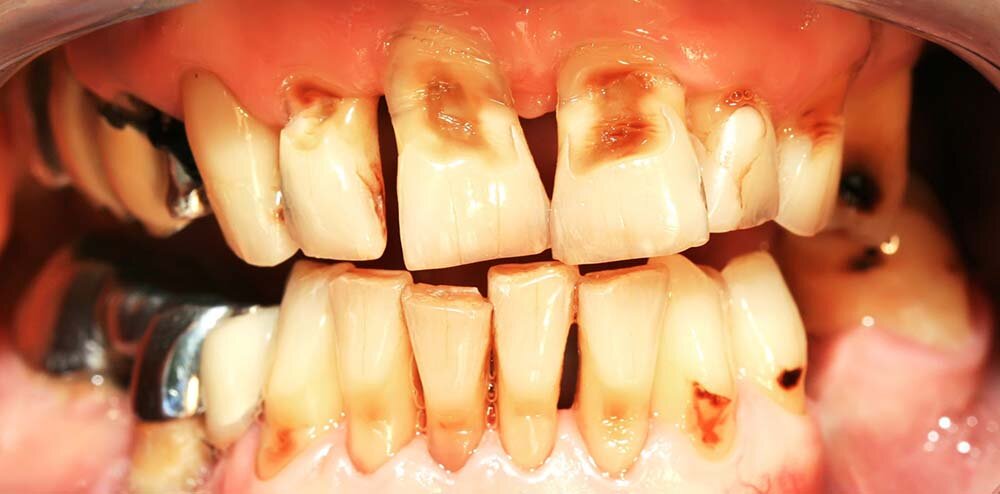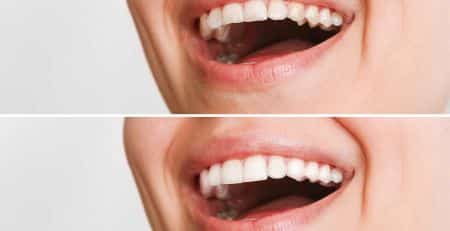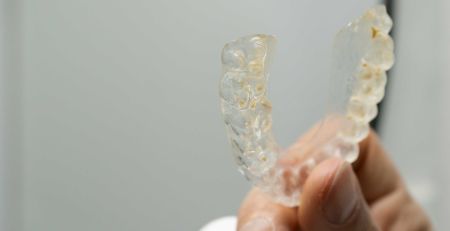Unravelling the Common Myth, is Dental Health Hereditary?
Oral health plays a crucial role in our overall well-being, and many individuals wonder whether bad teeth and oral health issues are linked to their genetic makeup. Whether genetics influences our dental health has been a subject of much debate and research.
You might inherit your parents’ physical traits, but your genes can also influence oral health. Crooked teeth, for example, may run in families through generations. Additionally, you might have picked up your parents’ oral health habits, both good and bad, impacting your dental health and oral hygiene. While genetics play a role, it’s important to recognize that other factors, such as personal habits, also contribute to your overall oral health.
Whether genetics influences our dental health has been a subject of much debate and research. This article explores the link between genetics and oral health to highlight the myths, facts, and genetic factors that may impact our teeth and gums.
The Role of Genetics on Dental Health
It is undeniable that genetics can influence various aspects of our health, and dental health is no exception. Certain genetic factors can predispose individuals to specific dental conditions or affect how their teeth and gums develop. For example, the size and shape of our teeth, the strength of our tooth enamel, and the positioning of our jaw may have genetic influences.
Tooth Enamel and Strength
The quality and thickness of tooth enamel, the protective outer layer of our teeth, can be influenced by genetic variations. Research studies have identified genes associated with enamel formation and development, such as amelogenin (AMELX) and enamelin (ENAM). Variations in these genes have been linked to enamel defects, which may increase the risk of tooth decay and sensitivity.
Tooth Alignment and Jaw Structure
Genetics can play a role in determining the alignment of our teeth and the structure of our jaw. Studies have investigated the heritability of malocclusions (misaligned teeth) and identified genetic loci associated with dental and craniofacial development. Genetic factors may contribute to the development of malocclusions and influence the need for orthodontic interventions.
Malocclusion refers to a misalignment of the teeth or incorrect jaw positioning when the mouth is closed. This condition can lead to improper bite patterns, affecting the appearance and functionality of the teeth and jaw.
Susceptibility to Gum Disease
Some individuals may be genetically predisposed to an increased risk of gum disease. Research has identified genetic variations associated with immune responses and inflammation, which can impact the body’s ability to combat harmful bacteria in the mouth. Genetic factors may contribute to an individual’s susceptibility to periodontal diseases, including gingivitis and periodontitis.
Salivary Composition
Saliva plays a crucial role in oral health, helping to cleanse the mouth, neutralize acids, and defend against harmful bacteria. Genetic factors can influence the composition of saliva, affecting its ability to protect against dental issues. Variations in saliva production and composition genes may impact an individual’s susceptibility to cavities and gum disease.
Taste Perception and Diet
Genetic variations can influence taste perception, influencing food preferences and dietary habits. A person’s diet can significantly impact oral health, as certain foods may increase the risk of dental issues, such as cavities. Genetic factors may influence an individual’s inclination towards sugar, acidic foods, or other dietary choices that affect oral health.
Is Tooth Decay a Hereditary?
Tooth decay is not solely hereditary, but genetics can affect an individual’s susceptibility to dental issues. While some genetic factors may influence the development of tooth enamel and saliva composition, environmental and lifestyle factors such as oral hygiene practices, diet, and dental care play a more significant role in tooth decay.
Practising good oral hygiene and seeking regular dental check-ups are essential for preventing tooth decay, regardless of genetic predisposition.
Nature vs. Nurture: The Impact of Lifestyle and Environment

While genetics can play a role in dental health, it is essential to recognize that environmental and lifestyle factors also significantly influence oral well-being. Lifestyle and the environment play significant roles in influencing oral health. The choices we make daily and the surrounding conditions can impact the condition of our teeth and gums.
- Diet: Consuming a balanced diet with limited sugary and acidic foods helps prevent tooth decay and enamel erosion. Poor dietary choices, especially high sugar intake, can lead to cavities and other dental problems.
- Oral Hygiene: Regular brushing, flossing, and mouthwash are essential for maintaining good oral hygiene. Neglecting these practices can lead to plaque buildup, gum disease, and bad breath.
- Smoking and Tobacco Use: Smoking and tobacco products stain teeth and increase the risk of gum disease and oral cancer.
- Alcohol Consumption: Excessive alcohol consumption can dry out the mouth, reducing saliva production, which is essential for oral health.
- Stress: Chronic stress may lead to teeth grinding (bruxism), which can cause tooth wear and jaw pain.
- Environmental Factors: Fluoride in water and oral care products can promote dental health. Access to dental care and education also influences oral health outcomes.
- Regular Dental Visits: Routine professional cleanings help remove plaque and tartar buildup. Dentists can also attend to oral health issues early before they worsen.
Prevention is Key to Avoid Bad Teeth and Oral Health Issues

Understanding the potential genetic factors in your oral health can be valuable in making informed decisions about your dental care.
Preventive measures and early intervention are essential for those with a family history of certain dental conditions, such as gum disease or tooth decay. Regular dental visits, professional cleanings, and following your dentist’s recommendations can help prevent or address dental issues early on, improving long-term oral health outcomes.
Preventive dentistry encompasses a range of dental services and practices to maintain optimal oral health, prevent dental issues, and address problems at an early stage.
The Bottom Line
While genetics can influence specific aspects of dental health, it is not the sole determinant of the condition of our teeth and gums. Being proactive about oral health and seeking regular dental care is essential to maintaining healthy teeth and gums.
The combination of genetics, lifestyle choices, and dental care practices all contribute to overall oral health. Understanding your genetic predispositions and taking proactive steps to care for your oral health can lead to a brighter, healthier smile and set the foundation for a lifetime of optimal dental well-being.
Consult a Professional Dentist
Take the first step towards excellent oral health with an Amazing Smiles Dentist on our Gold Coast, Bray Park, Jimboomba, Wynnum, and Logan Dental Clinics. Our team is dedicated to being your trusted partner in dental care. Whether you have concerns about genetic predisposition to dental issues or seek tailored preventive strategies, our dentists are here to help.
Experience personalized advice and a comprehensive dental care plan to address potential genetic influences and achieve the best oral health outcomes. Knowledge, prevention, and timely intervention are the cornerstones of a lifelong journey towards healthy teeth and a radiant smile. Don’t wait – visit us in person and discover the difference Amazing Smiles can make for your oral health today.
References:
- Seymen F, Lee KE, Tran Le CG, et al. “Characterization of dental phenotypes in a family with WNT10A mutations.” Archives of Oral Biology, 2016; 70: 92-98.
- Jensen TA, Yao S, Cohen DJ, et al. “Genome-wide Association Study of Malocclusion Reveals Genetic Loci Associated with Different Phenotypes.” Journal of Dental Research, 2016; 95(2): 144-151.
- Offenbacher S, Barros SP, Singer RE, et al. “Genetics of periodontal disease.” Odontology, 2006; 94(1): 10-18.
- Ha M, Park S, Choi D, et al. “Genetic influences on salivary amylase, salivary alpha-amylase, and the ratio of salivary alpha-amylase to salivary total protein levels.” PLoS ONE, 2018; 13(9): e0203962.
- Feeney EL, Hayes JE. “Exploring associations between taste perception, oral anatomy and polymorphisms in the carbonic anhydrase (gustin) gene CA6.” Physiology & Behavior, 2014; 137: 104-112.









